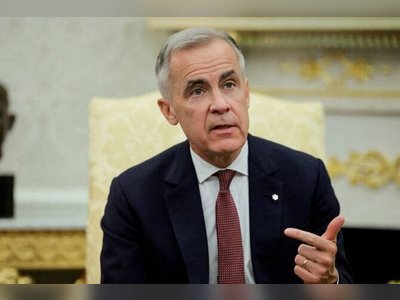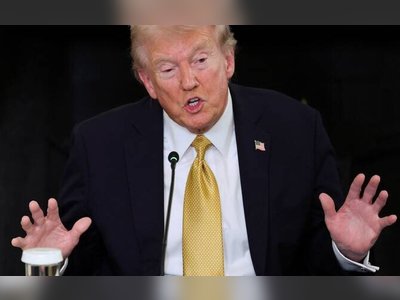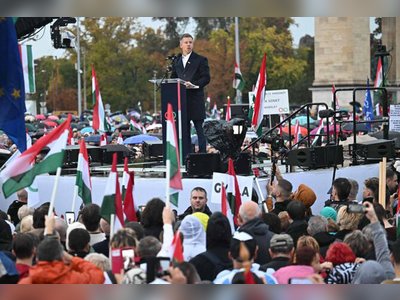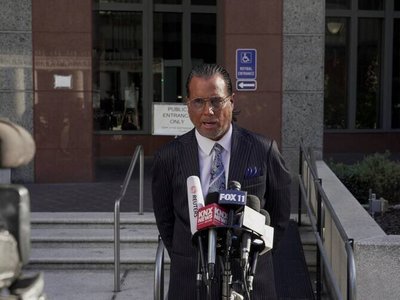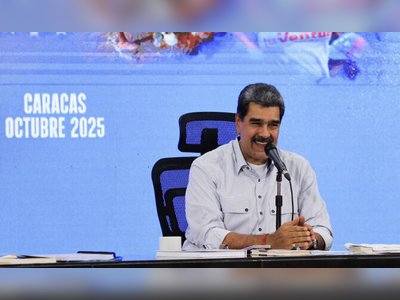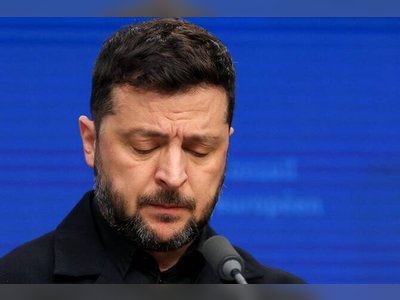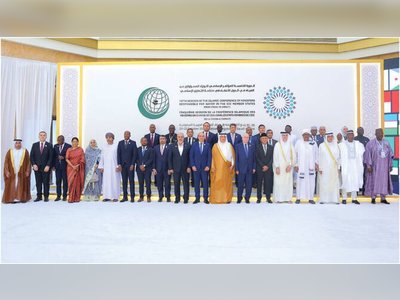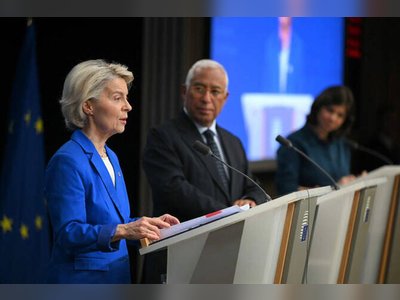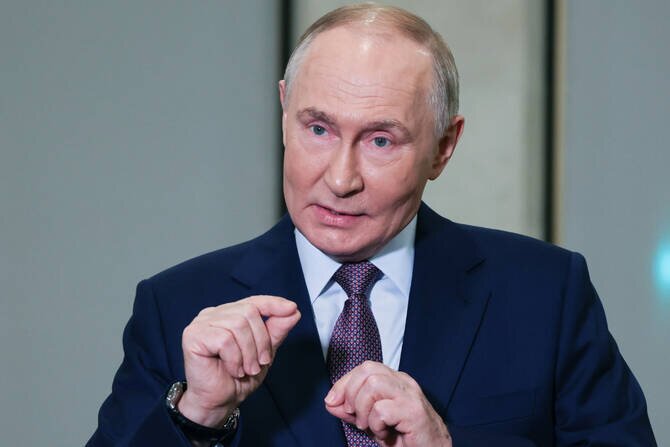
Putin Unperturbed as US Sanctions Russian Oil Companies
US President Donald Trump imposes sanctions on Rosneft and Lukoil in a bid to pressure Putin over Ukraine.
Russian President Vladimir Putin maintained his composure on Thursday following the imposition of US sanctions on Russia's two largest oil companies, Rosneft and Lukoil.
The sanctions were introduced by US President Donald Trump as part of an effort to compel Kremlin leader Vladimir Putin to cease hostilities in Ukraine.
The sanctions led Chinese state-owned oil majors to temporarily halt Russian oil purchases, according to sources quoted by Reuters.
Meanwhile, Indian refineries, which are the largest buyers of seaborne Russian oil, are expected to significantly reduce their crude imports, as per industry sources.
These measures target oil giants Rosneft and Lukoil, accounting for more than 5% of global oil output.
This marks a significant shift in Trump's stance who only last week expressed his intention to hold a summit with Putin in Budapest aimed at ending the conflict in Ukraine.
While the immediate financial impact on Russia might be limited, the sanctions signal Trump's determination to pressure Russia's finances and push for a peace deal in its ongoing invasion of Ukraine, which has now lasted over three years.
Responding to the sanctions, Putin dismissed them as "an unfriendly act" and claimed that they would not significantly affect the Russian economy.
He also warned that a substantial decrease in supply could lead to increased prices, causing discomfort particularly for countries like the US.
Trump later commented on Putin's assertion that the new sanctions would have no significant impact, stating, "I'm glad he feels that way.
That's good.
I'll let you know about it in six months from now".
The conflict in Ukraine continues to escalate as Kyiv seeks support from US and European allies for long-range missiles to aid in its defense efforts.
In response to potential strikes deep into Russia, Putin has threatened a "very serious" or even "overwhelming" response.
Trump recently canceled the planned summit with Putin, citing the lack of progress in their conversations.
Putin, however, believes that the meeting was merely postponed.
He reiterates that Russia's conditions for ending the war in Ukraine remain unchanged.
The ongoing conflict saw European Union leaders and Ukrainian President Volodymyr Zelensky meet in Brussels to discuss funding for Ukraine.
While they agreed on addressing Ukraine's financial needs over the next two years, concerns were raised regarding the use of frozen Russian assets to provide a substantial loan, particularly by Belgium.
Ukraine's Zelensky described the sanctions as "very important" but emphasized that more pressure would be necessary to secure a ceasefire from Moscow.
The EU subsequently adopted its 19th package of Russia sanctions, banning Russian liquefied natural gas imports and targeting entities including Chinese refiners and Central Asian banks.
The EU has reduced its dependence on Russian energy by approximately 90% since the beginning of the conflict in 2022 but still imported over 11 billion euros' worth of Russian energy in the first eight months of this year, with LNG representing the largest portion of these imports.
Russian oil and gas revenue, currently down 21% year-on-year, constitutes a significant portion of its budget and is crucial for funding Moscow's war efforts.
Nonetheless, the main source of Moscow's revenue stems from taxing output rather than exports, potentially mitigating the immediate impact of the sanctions on state finances.
The sanctions were introduced by US President Donald Trump as part of an effort to compel Kremlin leader Vladimir Putin to cease hostilities in Ukraine.
The sanctions led Chinese state-owned oil majors to temporarily halt Russian oil purchases, according to sources quoted by Reuters.
Meanwhile, Indian refineries, which are the largest buyers of seaborne Russian oil, are expected to significantly reduce their crude imports, as per industry sources.
These measures target oil giants Rosneft and Lukoil, accounting for more than 5% of global oil output.
This marks a significant shift in Trump's stance who only last week expressed his intention to hold a summit with Putin in Budapest aimed at ending the conflict in Ukraine.
While the immediate financial impact on Russia might be limited, the sanctions signal Trump's determination to pressure Russia's finances and push for a peace deal in its ongoing invasion of Ukraine, which has now lasted over three years.
Responding to the sanctions, Putin dismissed them as "an unfriendly act" and claimed that they would not significantly affect the Russian economy.
He also warned that a substantial decrease in supply could lead to increased prices, causing discomfort particularly for countries like the US.
Trump later commented on Putin's assertion that the new sanctions would have no significant impact, stating, "I'm glad he feels that way.
That's good.
I'll let you know about it in six months from now".
The conflict in Ukraine continues to escalate as Kyiv seeks support from US and European allies for long-range missiles to aid in its defense efforts.
In response to potential strikes deep into Russia, Putin has threatened a "very serious" or even "overwhelming" response.
Trump recently canceled the planned summit with Putin, citing the lack of progress in their conversations.
Putin, however, believes that the meeting was merely postponed.
He reiterates that Russia's conditions for ending the war in Ukraine remain unchanged.
The ongoing conflict saw European Union leaders and Ukrainian President Volodymyr Zelensky meet in Brussels to discuss funding for Ukraine.
While they agreed on addressing Ukraine's financial needs over the next two years, concerns were raised regarding the use of frozen Russian assets to provide a substantial loan, particularly by Belgium.
Ukraine's Zelensky described the sanctions as "very important" but emphasized that more pressure would be necessary to secure a ceasefire from Moscow.
The EU subsequently adopted its 19th package of Russia sanctions, banning Russian liquefied natural gas imports and targeting entities including Chinese refiners and Central Asian banks.
The EU has reduced its dependence on Russian energy by approximately 90% since the beginning of the conflict in 2022 but still imported over 11 billion euros' worth of Russian energy in the first eight months of this year, with LNG representing the largest portion of these imports.
Russian oil and gas revenue, currently down 21% year-on-year, constitutes a significant portion of its budget and is crucial for funding Moscow's war efforts.
Nonetheless, the main source of Moscow's revenue stems from taxing output rather than exports, potentially mitigating the immediate impact of the sanctions on state finances.
